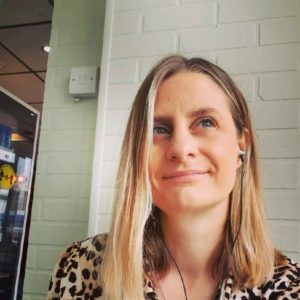At the University of London Worldwide we have been nurturing a community of practice around developments and issues in digital education. It has become a popular event with colleagues and has brought unexpected benefits.

Tell us more about the group
Our digital education reading group meets every six weeks to discuss current issues in digital education. It provides a space to step back from everyday tasks to consider the wider field of educational technology and the implications for us as online education professionals.
Group members suggest themes and articles to read in advance, and then we meet to discuss key questions and how this impacts on our practice here at the University of London.
Who is involved?
We have a large team here and the reading group has attracted interest from across the board. The group includes people with roles including learning designers, career consultants, academic project managers, directors, assessment experts, academic editors, videographers, academics, student liaison colleagues and learning technologists. This interesting mix of experience and insight gives the group an incredibly valuable range of ideas and perspectives.
Where did you get the idea?
This is by no means an original idea. I was inspired by the excellent work of the London eLearning reading group and I wanted to do something locally to support learning and development across the wider team and to include people whose roles may not traditionally involve learning technologies directly. In my previous role at the University of West London we did something similar over coffee and I wanted to continue this tradition.
The group first met in February 2020, just before the pandemic caused us work from home. We quickly moved online and started meeting via Teams (which we continue to do) – I think this is when we saw the real value of this opportunity to come together regularly and informally, and to take some time to discuss new topics.
What makes it a success?
The group has been going from strength to strength; we now have over 30 members and more have joined recently through word of mouth. People attend when they have time and when there is a topic of interest. Each meeting regularly attracts about ten people which turns out to be a good sized group where everyone can contribute without too much pressure.
I think that the variety of topics suggested by members keeps it relevant, varied and interesting. The meetings are facilitated by different participants each time – this shares responsibility and the group feels jointly owned by its members. Importantly, we try to make each session as accessible as possible by including a mix of resources; in addition to research-based journal articles, we look at blog posts, newspaper articles and YouTube videos. Members can dip in to as much or as little as they want or are able to in advance of the meetings.

One of the reading group’s original members, Vicky Devaney, explains why she has been a member of the group for so long.
“I love being a part of the digital education reading group. I get so much out of it! As well as being a full-time learning designer, I am also a part-time student and think of topics for discussion based on what I am learning at the time. Discussing these topics with the group members in an informal setting really helps me to solidify my own learning and often inspires new ideas. I also love being introduced to new concepts by group members. A memorable example was a session on gamification in online learning. The colleague leading the session gave some fantastic examples of it so we could visualise the impact gamification could have on students.”
What do you get out of being involved with the group?
There are the obvious benefits such as keeping up to date with news and developments professionally, and reflecting on how these impact my work.
But there are unexpected benefits I didn’t anticipate. Being connected to the wider team, outside of our everyday silos, allows us to connect with new colleagues providing a rounded perspective on online education. As a learning designer I’m often at the beginning of the programme development process, but meeting with colleagues involved in student support and evaluation and teaching allow me to see the other end of the student journey and the impact of my work.
The existence of the group means members are always on the look out for interesting readings and they have a place to share links and articles with colleagues throughout the month. It encourages us all to read more widely and be alert to new news – something that is easy to fall off the radar in busy times.
I am proud of having developed a community which welcomes people of all levels of experience. We have people new to online learning at the start of their career, and directors with 20+ years of experience. It’s a wonderful and inclusive place to learn, and everyone is welcome!
What do you discuss?
In our first meeting we discussed Learning styles: fact or fiction, and have gone on to cover topics including humour in elearning, online assessment and academic integrity, autoethnography, online engagement and learning analytics. Here’s a full list of the topics we have discussed at previous meetings.
